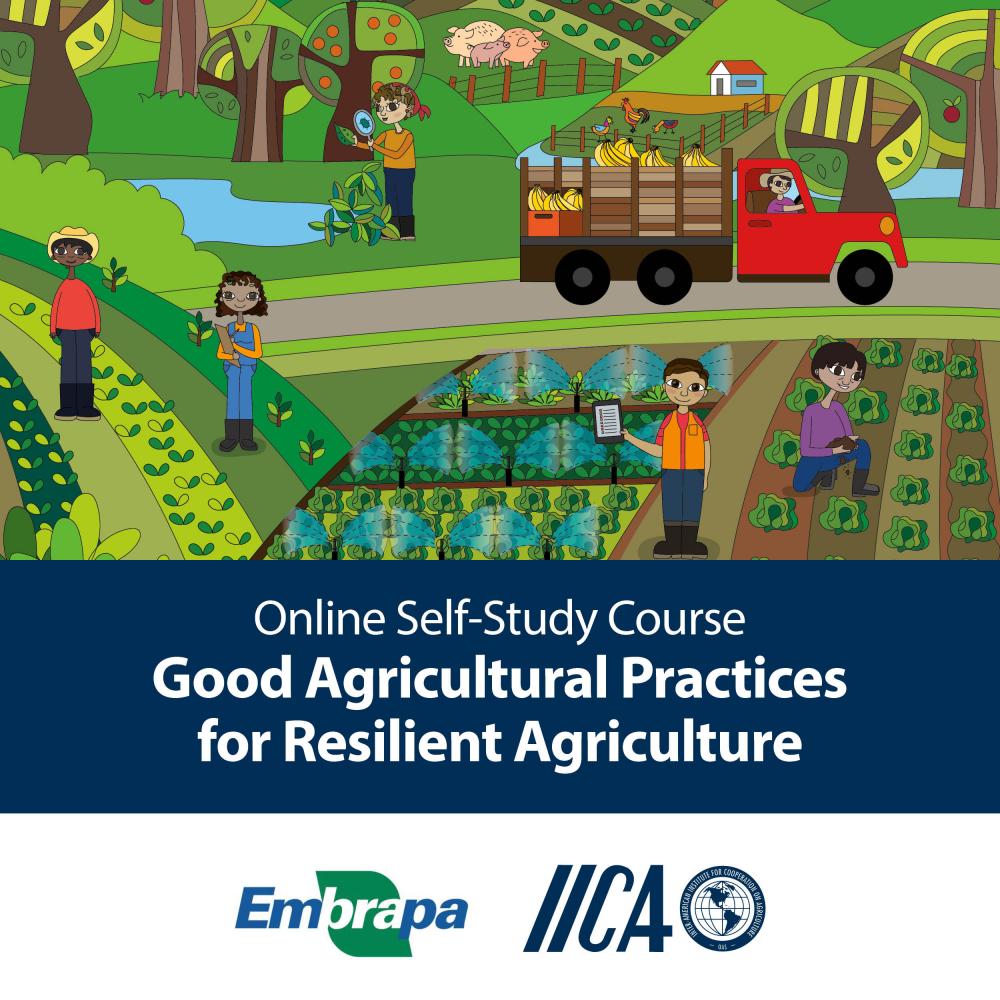The training course begins 23 September, is free of charge and available at the IICA e-learning platform, https://elearning.iica.int/.

San José, 17 September 2021 (IICA.) The Brazilian Agricultural Research Company (EMBRAPA) and the Inter-American Institute for Cooperation on Agriculture (IICA) have launched the online course Good Agricultural Practices for a Resilient Agriculture, which aims to strengthen capacities in the countries of the Americas for the efficient management of sanitary, phytosanitary and environmental risks in agricultural production.
The course is free of charge and is available in Spanish and English on IICA’s e-learning platform. It will begin on 23 September and is aimed at producers, processors, extensionists, educators and all people involved in agricultural production and Environmental Protection.
Interested parties may register at this link: https://elearning.iica.int/course/view.php?id=432.
“Consumers increasingly prefer products that better fulfill standards of health, safety and environmental responsibility. In this context, the course sets out to make the countries increasingly self-sufficient in the field of GAPs and create awareness of the role that governments and producers play in the implementation of these practices,” explained IICA’s international specialist in agricultural health and food safety, Alejandra Díaz.
The course is self-managed and consists of nine modules that deal with issues such as the importance of GAPs in risk management in agriculture, farm management, soil management and fertilization, water management, crop protection, pesticides storage and surplus management, health and hygiene, harvest and transport, training, documentation and traceability, and GAP improvement assessments and plans.
“Many countries seek to modernize their regulations to ensure the provision of safe foods suitable for consumption. Primary production is the focus of attention, with a view to minimizing the risk of contamination and incorporating environmental aspects from the beginning of the food chain,” added EMBRAPA senior researcher and Impact Assessment and Environmental Management specialist, Luciano Gebler.
The online training lasts 27 hours. To pass students must complete 100% of the modules and attain a pass rate of at least 80% in each one.
More information:
Alejandra Díaz, IICA international specialist in agricultural health and food safety.
alejandra.diaz@iica.int
Luciano Gebler, EMBRAPA senior researcher and specialist in impact assessment and environmental management.
luciano.gebler@embrapa.br











